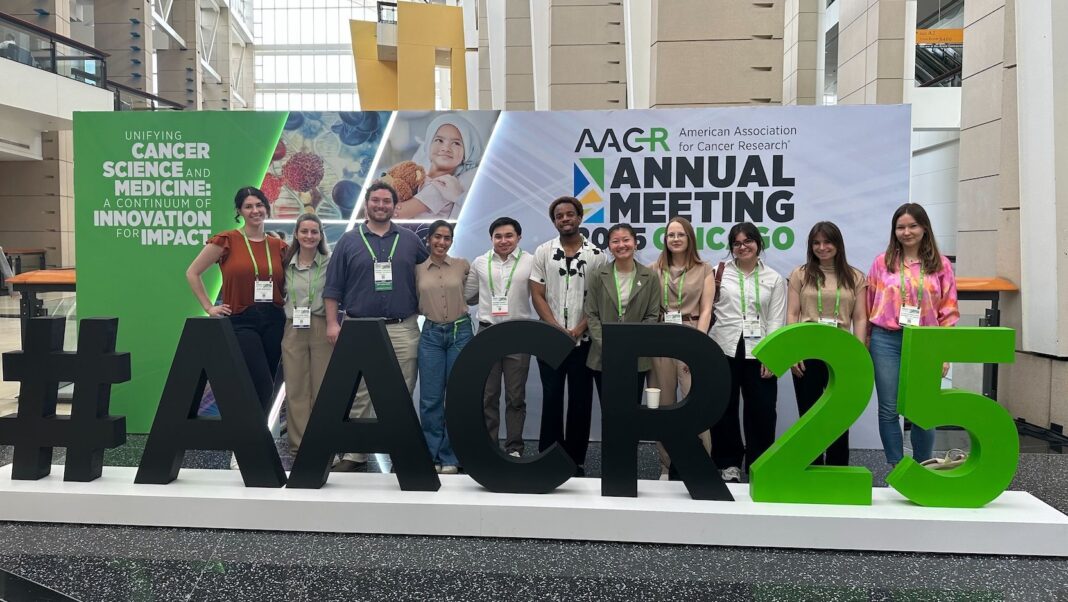“In the relentless pursuit of eradicating cancer, the world’s top minds in oncology, research, and medicine converged at the AACR Annual Meeting – a premier gathering of visionaries, innovators, and change-makers. Against the backdrop of unprecedented scientific breakthroughs and emerging discoveries, this year’s meeting marked a watershed moment in the quest for transformative therapies and patient-centered care. As a beacon of hope for millions worldwide, the University of Chicago Medicine played a pivotal role in unifying cancer science and medicine, forging new pathways, and accelerating the journey towards a future where cancer is a reality, not just a distant dream. In this article, we delve into the heart of the AACR Annual Meeting, where the convergence of cutting-edge research, collaboration, and innovation paved the way for groundbreaking advancements that will change the face of cancer care forever.”
Showcasing Cutting-Edge Research and Innovation

The UChicago Medicine Comprehensive Cancer Center (UCCCC) played a significant role in the American Association for Cancer Research (AACR) Annual Meeting, with more than 80 researchers presenting their latest scientific discoveries. The topics covered spanned the continuum of the cancer field, from fundamental research to clinical, translational, and population research to patient advocacy.
UCCCC faculty leaders chaired major sessions, including advances in non-small cell lung cancer immunology, and artificial intelligence in cancer research. For instance, Everett E. Vokes, MD, co-chaired a clinical trials plenary session that highlighted therapeutic advances in non-small cell lung cancer. Kunle Odunsi, MD, PhD, chaired the Cancer Immunology Working Group Town Hall and Networking Meeting.
The conference highlighted therapeutic advances, cancer immunology, and the use of artificial intelligence and machine learning. Samantha Riesenfeld, PhD, from the UChicago Pritzker School of Molecular Engineering, chaired a mini-symposium on the use of artificial intelligence and machine learning in cancer research.
The significance of international collaborations in cancer research was also emphasized. The AACR meeting brought together tens of thousands of researchers, physician-scientists, and patient advocates from around the world to explore breakthroughs, exchange ideas, and spark new collaborations aimed at advancing cancer science and medicine.
Inspiring High School Students: The AACR Special Program for High School Students
The AACR Special Program for High School Students, co-sponsored and co-organized by the UCCCC, aimed to inspire the next generation of researchers by encouraging student contributions to scientific discovery and sparking interest in careers in cancer science and medicine.
On April 29, more than 200 Chicago Public Schools students spent the day at the AACR Special Program, where they had the opportunity to engage with senior cancer scientists and learn about the latest advancements in cancer research. UCCCC Deputy Director Eileen Dolan, PhD, delivered a compelling talk on the critical need for young scientists in the cancer field and highlighted the various opportunities available through the UCCCC.
Fostering International Collaborations and Career Development
The AACR Global Scholars-in-Training Program
The AACR Global Scholars-in-Training program aims to build international collaborations and career development opportunities for graduate students, medical students, and clinical and postdoctoral fellows from across the globe.
On April 30, the UCCCC hosted a half-day campus visit for 15 international scholars from countries including Brazil, Argentina, Ethiopia, Ghana, India, Jordan, Malaysia, Nigeria, Pakistan, and Zambia. The visiting scholars had the opportunity to build international collaborations with UChicago’s cancer research community.
The UCCCC’s role in fostering global partnerships is crucial in advancing cancer research. The half-day campus visit provided a platform for international scholars to engage with UChicago’s cancer research community, promoting global collaborations and career development opportunities.
The Importance of Diversity and Inclusivity in Cancer Research and Medicine
The AACR meeting emphasized the importance of diversity and inclusivity in cancer research and medicine. The conference provided a platform for researchers, physician-scientists, and patient advocates from diverse backgrounds to come together and exchange ideas.
The UCCCC’s commitment to diversity and inclusivity in cancer research and medicine is crucial in advancing cancer science and improving patient outcomes. By promoting diversity and inclusivity, and international collaborations, the AACR meeting contributed to the advancement of cancer science and medicine.
Conclusion
In conclusion, the AACR Annual Meeting brought together the brightest minds in cancer science and medicine to share groundbreaking research and advances in the pursuit of breakthroughs for patients. The event showcased the latest discoveries in immunotherapy, precision medicine, and personalized treatment approaches, highlighting the significant progress made in the fight against cancer. By unifying the collective knowledge and expertise of the cancer research community, the meeting demonstrated the power of collaboration in accelerating the development of innovative treatments and improving patient outcomes.
The significance of this meeting cannot be overstated, as it underscores the urgent need for continued investment in cancer research and the importance of interdisciplinary collaboration to drive progress. The implications of these findings are far-reaching, with the potential to transform the cancer treatment landscape and improve the lives of millions of patients worldwide. As we look to the future, it is clear that the AACR Annual Meeting will continue to play a vital role in shaping the course of cancer research, pushing the boundaries of what is possible, and ultimately, saving more lives.

